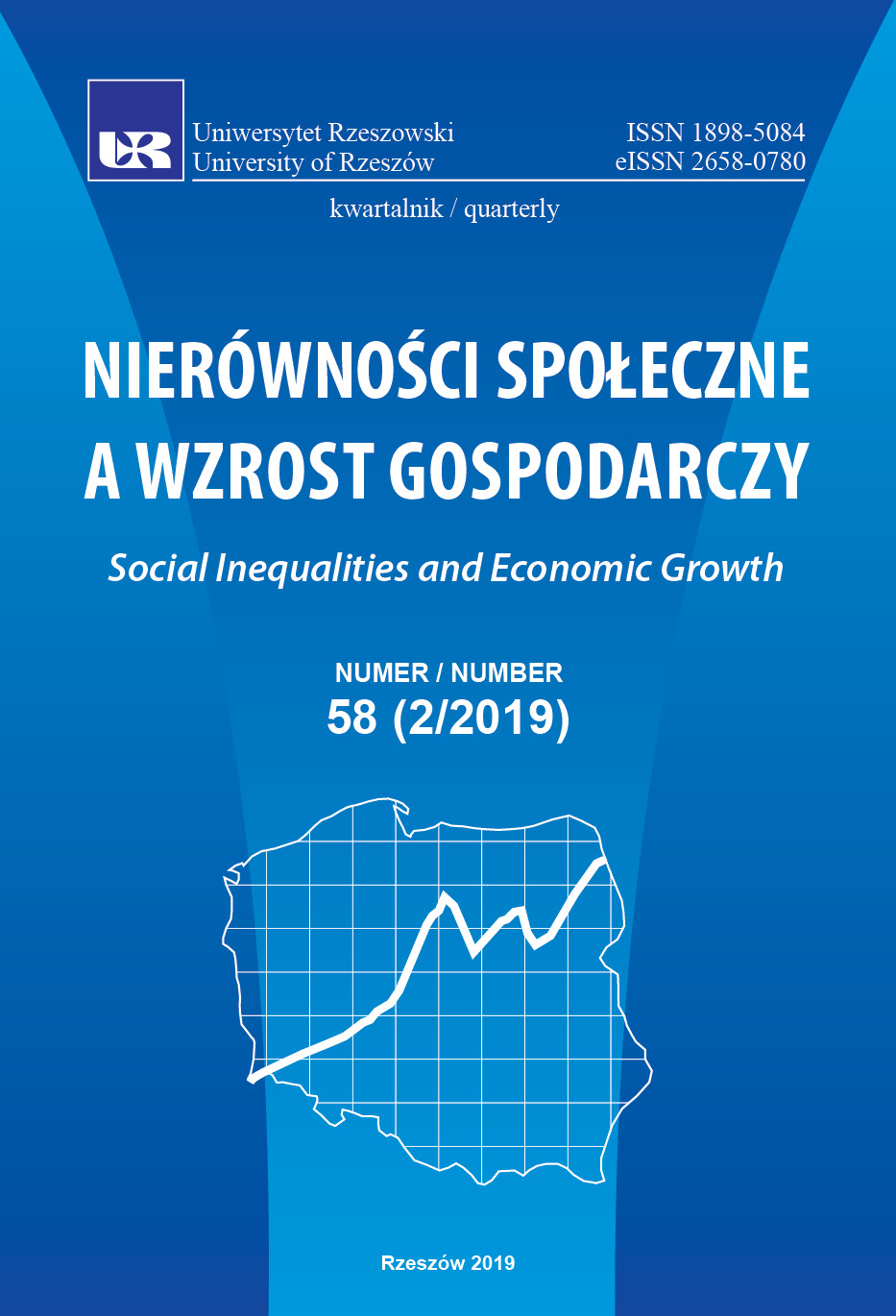Research of the efficiency of the use of innovative resources organizations in Belarus
DOI:
https://doi.org/10.15584/nsawg.2019.2.8Keywords:
innovative resources, financial efficiency, research intensity, funding for research and developmentAbstract
The ultimate goal of the study is to analyze the performance indicators of innovative resources of industrial organizations using economic and statistical methods. The proposed system of innovation resource performance indicators characterizes the performance of organizations from the standpoint of different input vectors: the indicators express the financial performance of organizations, the effectiveness of research and development, the cost effectiveness, the provision of fixed assets to workers, and the efficiency of labor input. As a result of the analysis, the growth of financial profitability of scientific and technical works was revealed; it characterizes a higher financial performance of research and development in comparison with the efficiency of sales of organizations. The structure of employment of scientific researchers in OECD countries is considered. As the share of expenditures on education in the total amount of expenditures of the consolidated budget decreases, it is necessary to create material incentives for attracting employees and securing the existing employment in the sphere of education. An international comparison of the share of government R&D expenditures in GDP by countries of the world was carried out, and countries with high and low levels of knowledge intensity were identified. It has been revealed that investments in fixed assets have a significant impact on the level of costs for technological innovations. Thus, the system of indicators allows us to understand the size of the research and development sector in the scale of the country’s economyDownloads
Download data is not yet available.
Downloads
Published
2020-11-13
How to Cite
Kolesnikova, I. (2020). Research of the efficiency of the use of innovative resources organizations in Belarus. Social Inequalities and Economic Growth, 2(58), 117–128. https://doi.org/10.15584/nsawg.2019.2.8
Issue
Section
Articles
License
Copyright (c) 2019 University of Rzeszow

This work is licensed under a Creative Commons Attribution-ShareAlike 4.0 International License.


